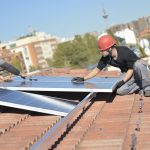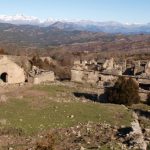Agri-food industry might receive lots of Recovery funding for a project which will do little to make industrial agriculture more sustainable. Instead, this money should be used to promote organic farming.
In a nutshell:
- Recovery money to perpetuate unsustainable industrial farming
- Industrial agriculture is responsible for 90% of ammonia emissions in Spain
- It is also deeply linked to deforestation in the Global South
Details:
The Spanish Recovery plan could finance 50% of a €3.5 billion project developed by an alliance of 21 of the biggest Spanish agri-food companies. On paper, the project is aimed at reducing the use of plastics, increasing the share of renewables and improving digitalization in farms. In practice, this would be a major gift for companies practising industrial, unsustainable farming.
In Spain, industrial farming and meat production are responsible for 92% of ammonia emissions, as well as for a significant percentage of greenhouse gas emissions from agriculture. On top of that, pork meat production has increased in recent years, and so has water contamination from nitrates linked to farming.
Industrial farming companies in Spain are also major importers of soybeans from Brazil, making them a major contributor to the deforestation of Amazonia. In fact, soy farming is responsible for two thirds of total deforestation in South America, and it is closely interlinked with land grabbing and other human rights violations. 95% of soy produced in Brazil and Argentina is also genetically modified, a process that goes hand in hand with intensive use of herbicides and other hazardous chemical inputs.
Instead of funding a project that support (without correcting) an agribusiness model responsible for serious impacts of deforestation and water pollution, the Spanish government should use this Recovery money to promote organic farming and other more sustainable modes of production, such as extensive grazing.
Sources:
Greenpeace España, Las macrogranjas envenenan el agua (2021)
Interempresas, El sector cárnico se compromete con la economía verde y digital (2021)
Ecologistas en Acción, Agroindustria y deforestación
Ecologistas en Acción, Stop macrogranjas, pueblos vivos (2017)








